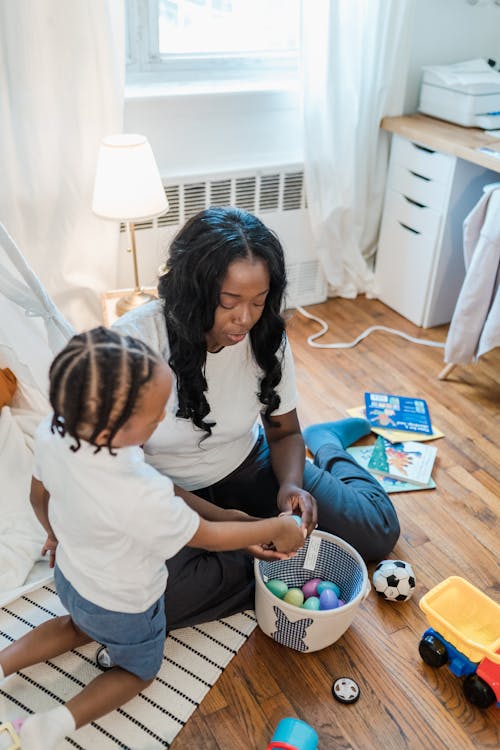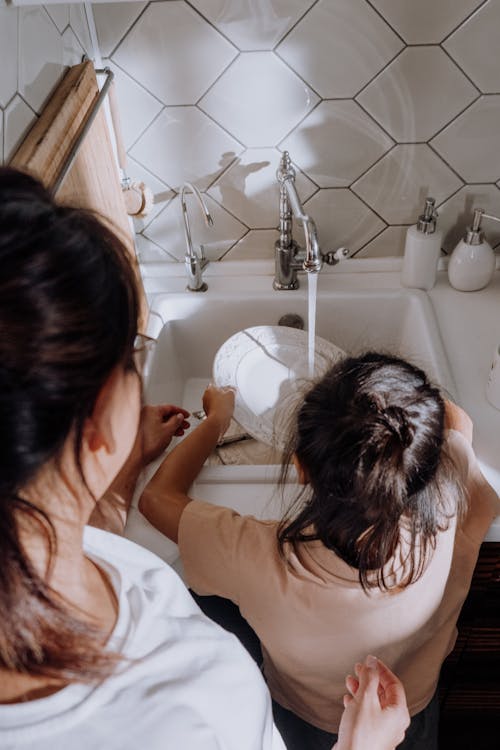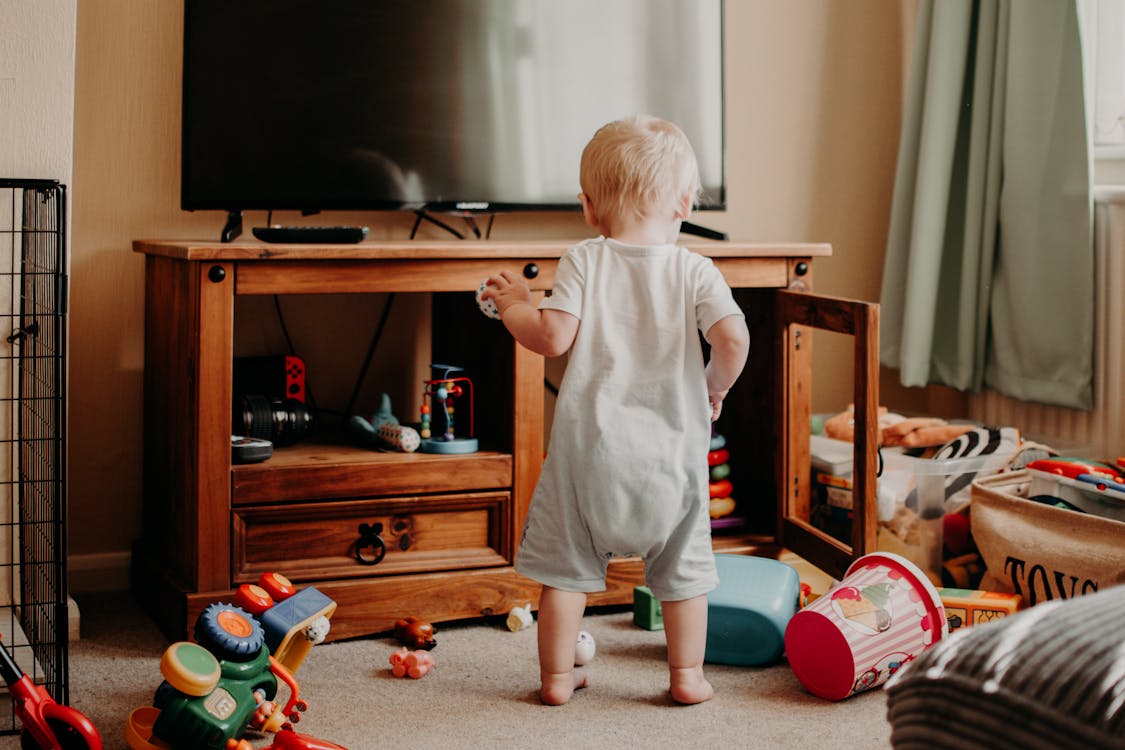
Why It's Good To Teach Toddlers To Tidy Up
Tired of packing away a floorful of toys at the end of every play session? Let your littlens help! The idea of teaching toddlers to tidy up might sound like an impossible task, but getting into this routine can have lasting benefits (beyond giving you a helping hand!).
Teaching Toddlers The Value Of Tidying Up
As a family-run toy company, we understand the importance of fostering an organised play setting for youngsters. In this article, we answer parents’ common questions about teaching toddlers to tidy up, including when to start, handling resistance and the role of chores.

Why is packing away good for toddlers?
Packing away and tidying up gives toddlers a sense of responsibility, independence, self-confidence and pride, particularly when given a lot of praise and encouragement by their parents. It teaches tots how to value their belongings and work as a team, and gives them opportunities to learn how to sort, count and categorise objects.
How do you make tidying up fun for kids?
You can make tidying up fun for kids by creating a cleaning playlist full of their favourite songs, dressing up and acting out silly storylines as you go, setting up a cleaning contest between siblings, playing beat the clock, dividing up the chores with a cleaning relay, treating them to their very own kids cleaning set, or dishing out small rewards.

What age should kids tidy up?
Toddlers might not master the art of organisation overnight, but introducing them to the concept of tidying and cleaning up can start as early as 18 months to 2 years. At this age, kids are developing their motor skills and cognitive abilities, making it an ideal time to familiarise them with tidying tasks.
Should toddlers have chores?
Age-appropriate chores can help toddlers grow into confident and self-sufficient young adults. It’s not about raising mini Cinderellas, it’s about teaching kids how to be responsible while also doing their bit to contribute to family life. But keep it simple! Start with tasks like putting toys away, placing clothes in the washing machine, or wiping spills with a cloth. It won’t be perfect (and you might have to redo it yourself afterwards!), but the act of tidying and cleaning will teach your child all sorts of life skills that will serve them into adulthood.

Is clutter bad for toddlers?
Yes. Clutter can fuel increased levels of cortisol, causing toddlers and children to feel overstimulated, stressed and anxious. Research suggests clutter can also have a negative effect on kids’ focus and concentration and can have a real impact on their mental wellbeing, resulting in heightened frustration and temper tantrums.
That said, kids are messy! The aim is not to have a sparklingly clean, pristine home 24/7 (who has time for that?), but to maintain a reasonably organised environment for your kids to play and thrive in.

What to do when my toddler refuses to clean?
Resistance is expected, and toddlers can be quite vocal about what they want and do not want to do (as you know!). Forcing them into it kicking and screaming is fun for no one, so, instead, try these 3 simple strategies:
- Empathise: Tell your toddler that you understand their feelings about not wanting to clean up, but also explain why it’s important. Affirming their emotions should make them feel more understood and supported, motivating them to help with the task.
- Offer choices: Give your toddler a sense of control by letting them pick from a choice of tasks, such as packing away the blocks or putting their dolls back in the box.
- Praise & encourage: Use positive reinforcement (think verbal praise or even small rewards) to help your toddler feel appreciated, compelling them to join you in completing the task.
Try Toy Rotation
Prevention is better than cure! A handy hack for limiting excessive mess is toy rotation. This involves arranging around 10 toys on a low shelf that your toddler can reach, then stashing the rest away in a toy box or cupboard (our White Toy Chest is ideal for storage). Then you switch them up every 1-2 weeks, or when you feel a refresh is needed.

This reduces clutter, makes clean-ups quicker and easier, and keeps things new and exciting for the kids! Read our toy rotation blog article to find out more about all the benefits of this Montessori organisation approach.
